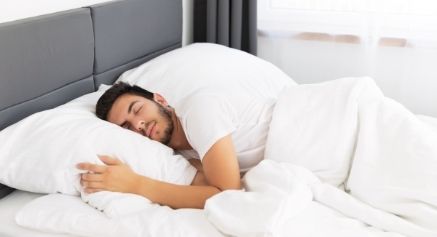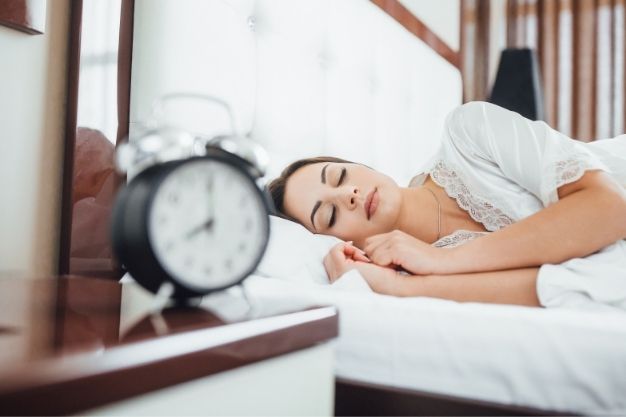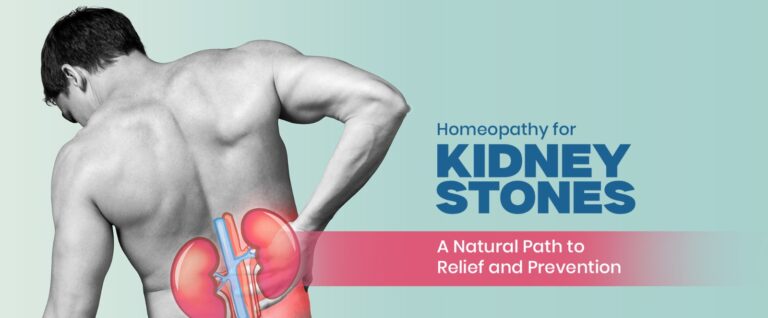Sleep has been a temporary friend to me for as long as I can remember. Often, I can’t sleep until I hear the birds singing outside, and by then, it’s time to go to work. Many individuals are oblivious to insomnia and other sleep issues. But it shouldn’t be an issue! Isn’t it true that sleeping less implies having more time to work? This blog will explain how insomnia may impair your work life and what you can do about it! We’ll also talk about shift insomnia and work and how to sleep more soundly no matter what time of day or night it is.
Insomnia has devastated my professional life over the last 25 to 30 years. I was always a high-flier, working for one of the Nation’s top corporations. Despite my sleeplessness, I received multiple promotions and performed admirably over the first six years of my career. However, after I became a mother, my insomnia increased. I was always tired, unable to focus, and unable to drive. I felt like I was bringing up mental health concerns like worry and depression, which might put your child in risk. The traditional approach was to prescribe very strong sleeping medications, but I knew that wasn’t the solution. I resolved to use natural treatment and insomnia and work myself.
What exactly is Insomnia Disorder?
Insomnia is one of the most prevalent sleep disorders, affecting one out of three working individuals. While many people use the term “insomnia” to describe the sensation of not getting enough sleep, insomnia disorder is a mental condition that can only diagnose if certain criteria are satisfied. According to the researchers, the conditions are stated.
The existence of insomnia disorder is described by the presence of poor sleep, which is characterized by:
- Having problems falling asleep (known as delayed sleep onset or initial insomnia)
- Sleep maintenance insomnia or middle insomnia is defined as trouble remaining asleep, waking up early, and being unable to return to sleep (termed late insomnia)
To be diagnosed, the sleep disruption must have a detrimental influence on a person’s ability to perform in crucial areas such as work or school, fulfilling daily duties, or sustaining interpersonal connections. Symptoms must be present at least three nights each week for three months, notwithstanding appropriate sleep opportunities.
Key points
We’ve all had the experience of having an improper night’s sleep followed by a long day at work. Your productivity drops, everyday chores become unusually difficult, and the clock seems to move at a frozen pace throughout the day.
But what happens when the number of bad sleep days outnumbers the number of good sleep days? On this page, we’ll look at why we need to have open dialogues about working with insomnia and in the workplace. We’re going to look into:
- Why you shouldn’t feel obligated to conceal your insomnia from your boss and coworkers
- The dangers of working without a good night’s sleep
- Is Working with Insomnia regarded as a disability?
- When it comes to insomnia, employers and workers both have legal responsibilities
- How to get help when insomnia is interfering with your work
Working with Insomnia at workplace
Given the magnitude of the disorder’s impact, it’s not unexpected that it’s been related to employment issues. In light of adjustments to working regulations impacting high-risk positions to public safety, such as medical trainees, commercial airline pilots, and commercial vehicle drivers, the significance of proper sleep and time away from work has increasingly been the subject of public discussion.
The researchers’ most recent findings reinforce the notion that sleep deprivation has a detrimental influence on the global work environment. Gathered data from 4,991 working people questioned over the phone concerning insomnia and 18 other chronic medical problems (e.g., cardiovascular, respiratory, and neurological disorders). An estimated 20% of those polled said they had insomnia and work for at least a year, with rates much higher among women and employees aged 45 to 64.
Insomnia was shown to be connected with almost 7% of all costly workplace accidents and mistakes and nearly 24% of the overall expenses of all accidents and errors, which was greater than any of the other medical diseases studied. The overall costs of accidents and mistakes caused by insomnia were greater by an average of Rs. 10,148 per event than expenses caused by other disorders. Furthermore, the yearly cost of insomnia and workplace accidents and mistakes has been estimated to be more than Rs. 32 billion.
Insomnia also appears to impair productivity, resulting in lost workdays and poor performance at work. According to recent data from the researchers, the disease causes considerable losses in job performance, with an annual rate of 11.3 days of missed work performance per individual with insomnia. According to the study’s authors, the yearly cost of lost production owing to insomnia is Rs. 59.8 billion.
Insomnia and work can also be connected to other mental and physiological conditions, hindering job performance or attendance. It is considered as one of the risk factors for anxiety, and depression. Both of these may have a detrimental influence on labor-force participation, the chance of employment, and years of schooling (affect employment status and earning potential). Cardiovascular and metabolic disorders that co-occur with insomnia, such as diabetes, obesity, hypertension, and hypercholesterolemia, are expensive to treat and inflict a significant strain on workplace expenses and productivity.
Insomnia Caused by Shift Work
It’s tough to settle into a regular pattern when you’re continuously working different shifts and your working hours are constantly changing. This can make remaining active and practicing good sleep hygiene challenging and difficult to maintain a regular sleep pattern. You may have to adjust the time you go to bed frequently, as well as set your alarm for different times in the morning depending on the shift you’re working.
The number of hours of sleep we require varies according to our age, but we must obtain the appropriate amount of sleep for our age group; otherwise, we may suffer from insomnia and work. Some folks start and finish work quite early. While this may not appear to be an issue, they will not be receiving enough sleep if they struggle to get to bed and sleep sooner at night.
Working night hours may be quite taxing on your body clock. Our biological clock (or circadian rhythm) uses environmental signals to determine when we should be sleeping and when we should be up. Daylight is one of these triggers. It might be challenging to stay awake and aware of working at night when it is dark outside.
Similarly, attempting to sleep during the day while bright may be quite difficult. If you do sleep during the day, there are considerably more noises and distractions likely to wake you up frequently or keep you from falling deeper into sleep. This implies that even if night shift employees sleep during the day, it is rarely enough to provide them with the rest they require.
Sleep deprivation can cause issues in both daily lives and at work. However, this is unlikely to alter if your employer needs you to work in shifts. So, how are you going to deal with it? Small modifications to your sleep hygiene might be crucial in helping you to obtain enough sleep.
Disclosing information regarding your insomnia
If you believe that your insomnia and work are negatively impacting your performance, the first step is to determine if you want to talk about it. This is a highly personal decision, and you should take your time with it. If you believe you have a good connection with your manager and that they would be understanding, coming up about your situation might be beneficial. You might also opt to be frank with your coworkers.
Being transparent may enable your company to be more understanding and adaptable, reducing your chances of getting into problems due to poor performance. They may also put measures in place to assist you in seeking treatment for insomnia and work. Your employer is responsible for all elements of your health. It’s also crucial to realize that insomnia is quite frequent and that you’re not alone: you have nothing to be embarrassed about.
If you decide to talk about it, it’s a good idea to have a strategy in place for dealing with your insomnia and work. This demonstrates to your company that you are proactive. However, if you don’t feel comfortable discussing it at work, you shouldn’t feel obligated. You can utilize the other methods we’ll go over to deal with your insomnia and get back on track in private.
Improving Home Sleep Hygiene
As we addressed shift work, sleep hygiene may benefit all of us. It should be one of your initial measures toward bettering your sleep. This can include things like:
- Creating a pleasant bedroom
- Maintaining a consistent sleep and wake pattern
- Keeping your bedroom just for relaxation
- Relaxing before going to bed
- Take fewer or no naps during the day if you have trouble sleeping at night
- Eliminating stimulants near night
- Work on some exercise during the day
- Make yourself available for some natural light to help you adjust your biological clock
- Keeping an eye on what you eat and drink close to bedtime
You should eliminate bad sleep hygiene practices and replace them with healthy coping strategies: this can make a significant difference in dealing with insomnia and work. If you’ve improved your sleep hygiene but are still having trouble, it’s a good idea to seek treatment.
What is the mechanism of action of cognitive-behavioral methods for insomnia?
Cognitive behavioral methods are also familiar as CBT-I enables you to identify and alter thoughts that interfere with your ability to sleep. This treatment process may assist you to control or eliminate the negative thoughts and anxieties that keep you awake at night.
CBT-behavioral I’s component assists you in developing excellent sleep patterns and avoiding behaviors that prevent you from sleeping soundly.
Depending on your needs, your sleep therapist may suggest one or more of the following CBT-I techniques:
- Stimulus management treatment: This strategy assists in the removal of variables that prepare your mind to oppose sleep. For example, you may be encouraged to establish a consistent bedtime and waking time, avoid naps, use the bed exclusively for sleep and sex, and leave the bedroom if you can’t fall asleep within 20 minutes, returning only when you’re drowsy
- Sleep deprivation: Lying in bed while awake can become a habit, leading to poor sleep. This treatment shortens your time in bed, producing partial sleep deprivation and making you fatigued the next night. Once your sleep has improved, you can progressively increase the amount of time you spend in bed to compete for insomnia and work
- Sleep hygiene is important: This therapeutic strategy entails modifying basic lifestyle choices that impact sleep, such as smoking or drinking too much caffeine late in the day, drinking too much alcohol, or not getting enough exercise. It also contains sleep-improvement ideas, such as techniques to unwind an hour or two before night
- Enhancement of the sleeping environment: This provides suggestions for creating a good sleeping environment, such as keeping your bedroom quiet, dark, and cold, not having a TV in the bedroom, and concealing the clock
- Relaxation training: This practice aids in the relaxation of both the mind and the body. Meditation, visualization, muscular relaxation, and other techniques are approaches
- Keeping a passively awakened state: This is also known as paradoxical purpose, and it entails avoiding any attempt to fall asleep. Worrying about not being able to sleep might, paradoxically, keep you awake. Allowing yourself to let go of your worry will help you relax and sleep better
- Biofeedback: This approach teaches you to change biological signals like heart rate and muscular tension by observing them. Your sleep specialist may instruct you to bring home a piece of biofeedback equipment to record your daily habits. This data can be used to discover sleep-related trends
Employers can also help by providing flexible work schedules and eliminating the requirement for late workdays. If shift work is needed, companies should be flexible in giving changeable shift rotations to the greatest degree practicable to ensure that workers get enough rest
Finally, organizations should be mindful of their internal regulations around work expectations and hours. The desire to succeed, which can push employees to take on more work, can backfire and harm productivity and outcomes
Naps should be limited: While sleeping appears to be a perfect technique to catch up on lost sleep, this is not always the case. It is critical to create and maintain a normal sleep routine and teach oneself to link sleep with cues such as darkness and a steady bedtime
Make your sleeping surroundings as comfy as possible: To make the bedroom suitable for falling (and staying) asleep, temperature, lighting, and noise should be managed. Your bed should be comfy, and if you have a pet who sleeps in the same room as you, consider having the creature sleep someplace else if it makes noise throughout the night
Restriction on activities in bed: The bed is only for sleeping and having sex. If are working with Insomnia, avoid doing things like balancing the chequebook, studying, or making phone calls while in bed or even in the bedroom, and avoid watching television or listening to the radio. All of these activities might heighten attentiveness and make falling asleep harder
The best effective treatment strategy may mix many of these approaches.
Who is a suitable candidate for cognitive behavioral procedures in the treatment of insomnia?
Cognitive behavioral procedures for insomnia and work can help almost everyone who has trouble sleeping. CBT-I can benefit people suffering from primary insomnia as well as those suffering from medical issues like chronic pain or mental health issues like depression, and anxiety. Furthermore, the benefits appear to be long-lasting. Furthermore, there is no proof that CBT-I has any significant side effects.
CBT-I takes consistent practice, and certain techniques may lead you to insomnia at first. But stay with it, and you’ll likely notice permanent improvements.
Treatment using Homeopathy
Homeopathy treatment delivers natural, side-effect-free miracles. It is helpful for both acute and chronic diseases, including insomnia and work. The treatment of long-term post-viral effects such as post-viral arthritis, asthma, fatigue, and so on. It’s advised to appear for the homeopathy treatment on frequent episodes for health and fitness.





